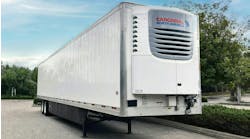At the recent climate change negotiations in Bangkok, Thailand, the European Union (EU) endorsed using the Montreal Protocol to phase down “super” greenhouse gases called hydrofluorocarbons (HFCs). The EU joins the United States, Canada, Mexico, Micronesia, Mauritius, and other nations in seeking rapid action under the Montreal Protocol to eliminate the threat to climate posed by HFCs.
Recent scientific evidence has shown that the explosive growth of HFCs, primarily used in refrigeration and air-conditioning, could negate international efforts to halt climate change by canceling out a large proportion of needed reductions of other greenhouse gases. A phasedown of HFCs could prevent the equivalent of three to five years of total global greenhouse gas emissions.
Primarily used as substitutes for ozone-depleting chemicals, HFCs—although ozone-friendly—have global warming potentials hundreds to thousands of times greater than carbon dioxide. The Montreal Protocol’s success in controlling and eliminating ozone-depleting substances means that it already has the infrastructure necessary to phase out HFCs quickly.
The EU’s proposal recognizes the role the Montreal Protocol can fulfill in achieving reductions in greenhouse gas emissions by phasing down HFCs. The Montreal Protocol is scheduled to meet in Port Ghalib, Egypt the first week of November and consider two proposals for allowing the Montreal Protocol to initiate an HFC phasedown. One is from North American nations (United States, Canada, and Mexico) and one from Micronesia, Mauritius, and other island nations. Both proposals leave HFC emissions in the “basket” of gases regulated by the United Nations Framework Convention on Climate Change (UNFCCC), but allow the Montreal Protocol to phase down production and use of HFCs.
For more information, phone the Environmental Investigation Agency’s Alexander von Bismarck at +1-202-483-6621 or Fionnuala Walravens at +44-7939-035481.


